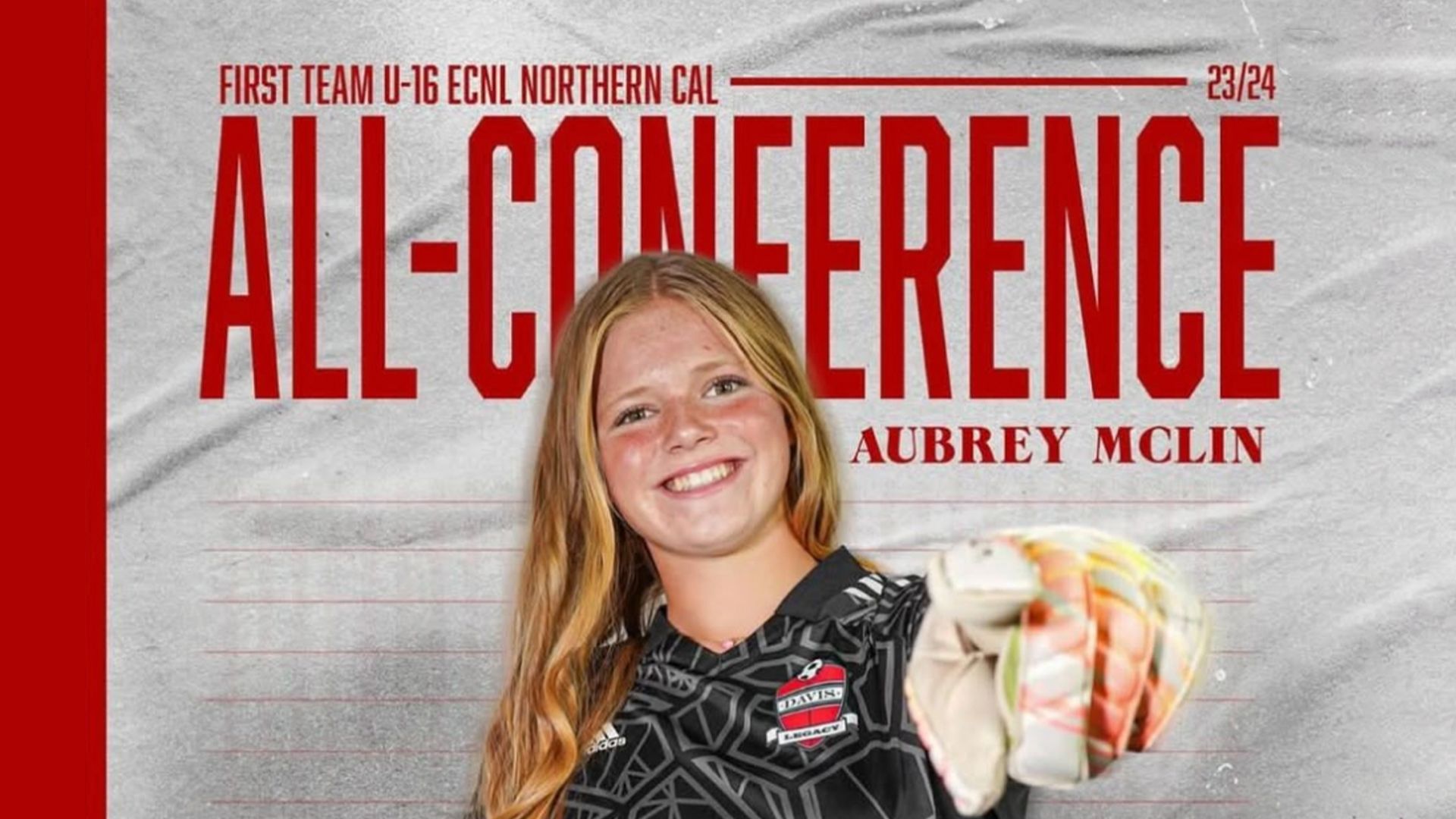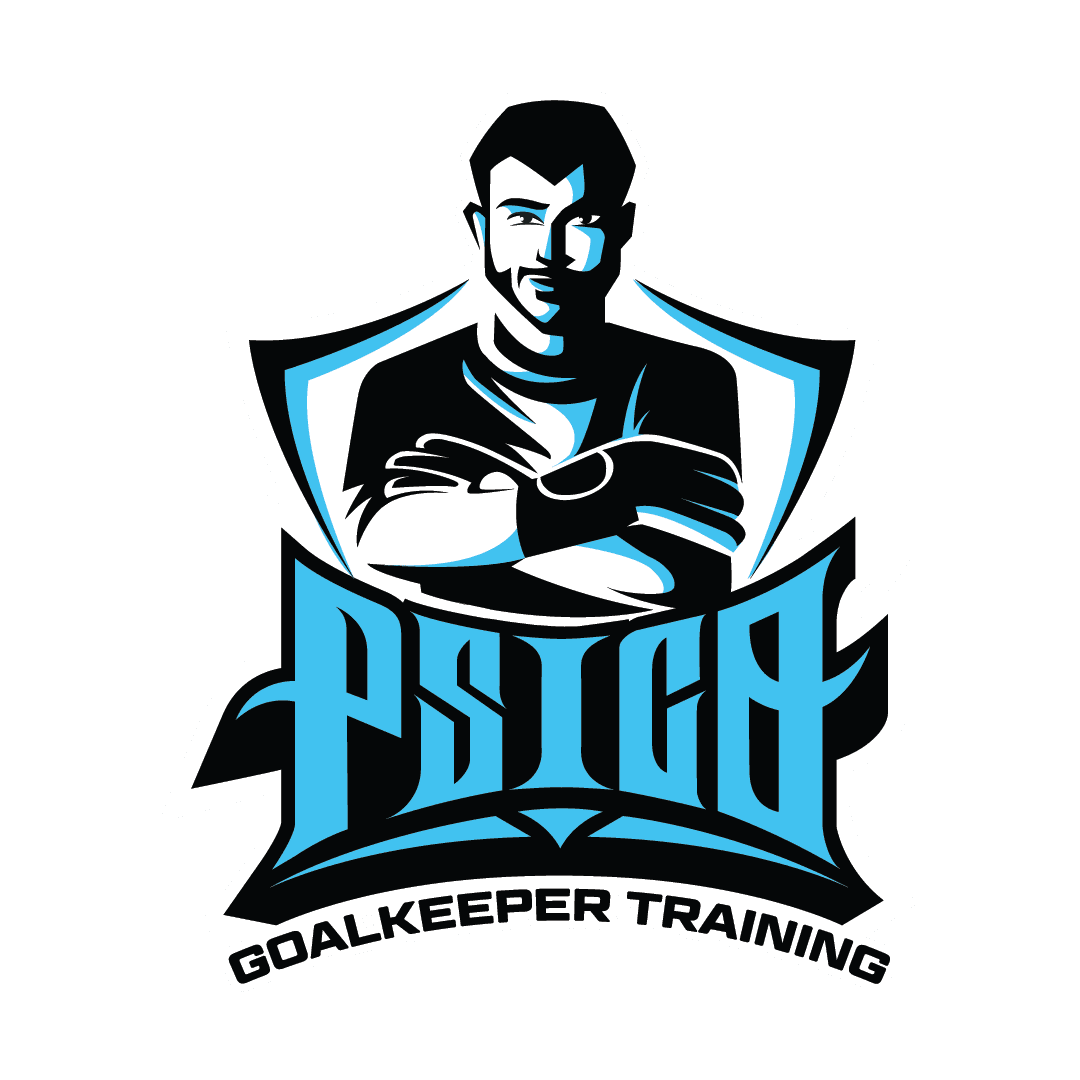The “Why”: Why a Solid Goalkeeper Training Program Outside of Club Soccer Matters
When it comes to developing your craft of goalkeeping, the truth is quite simple, club training alone isn’t enough. If you watch and listen to interviews with goalkeepers making headlines, you’ll notice a common trait and theme, most of them credit their success to consistent, focused work done outside of club sessions. Especially for youth and young adult goalkeepers playing in competitive club environments like ECNL, GA, or NPL, it’s hard to find a single program that truly develops every part of the craft, the physical, technical, and mental sides of the position.
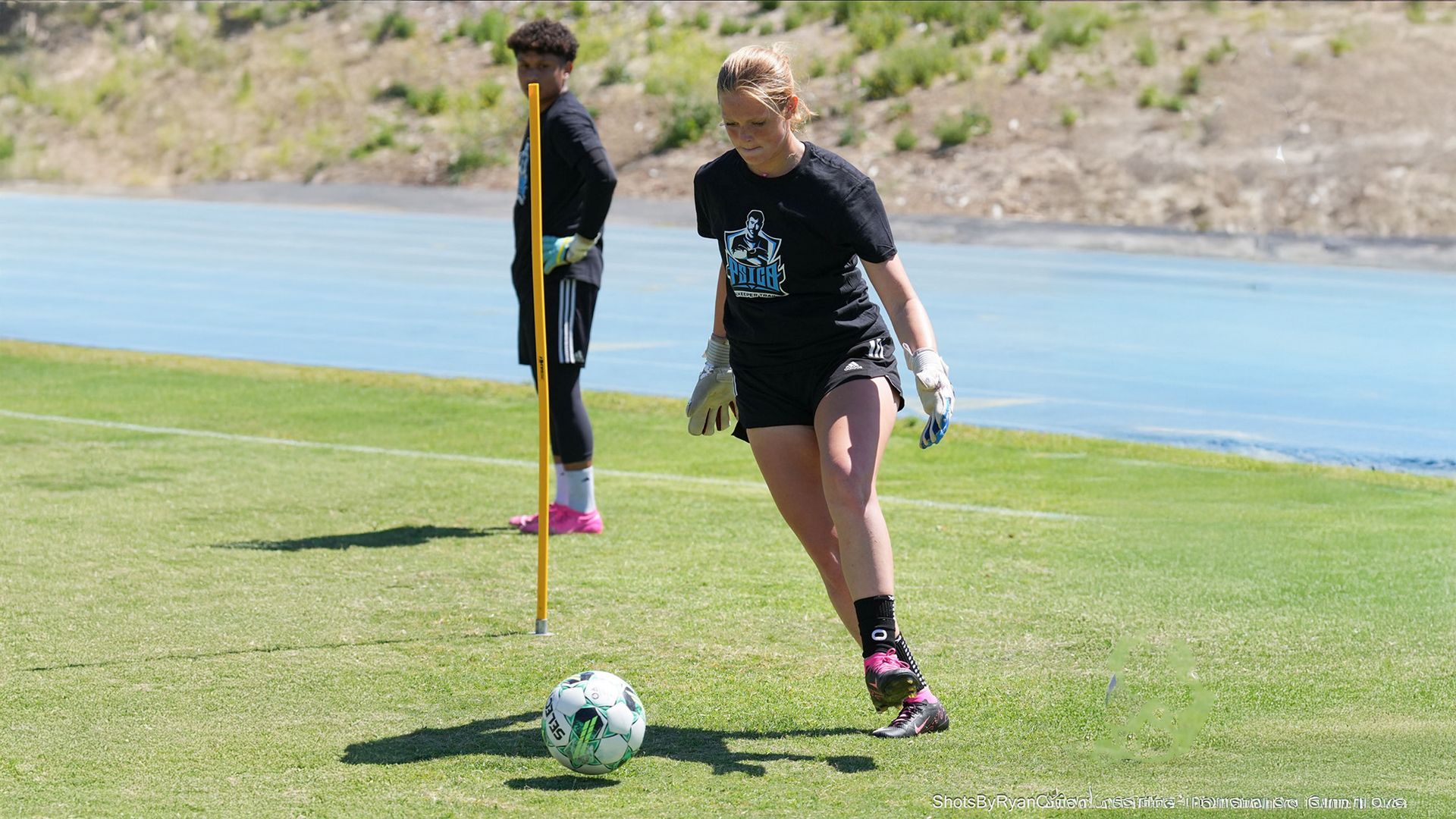
I took a lot planning, research, and coordination to find and build that kind of outside club support I have around me today. I needed people who could help me grow in every area of the sport and then fit into my schedule as a student-athlete. My training circle now includes six to seven coaches and trainers, each with their own focus. I watch college and pro matches film, studying the training footage, listening to goalkeeper podcasts (Inside the 18 & Jillian Loyden from The Keeper Institute) and use programs that help me build the mental side of the sport (Female Footballers). Between school work and soccer training, my week is pretty filled up but wouldn’t want it anything other way. My day one motto has always been joy not job.
And my why is simple, I love my sport. I’m addicted to goalkeeping. And I know that finding and sticking to a solid, well-rounded training program is what’s going to take me further, not just in my skills, but in my career and craft. Every goalkeeper has different strengths, weaknesses, and schedules, but the one thing I believe all great GKs would agree on is commitment to extra training and building the habits that turn potential into performance is what changes the game.
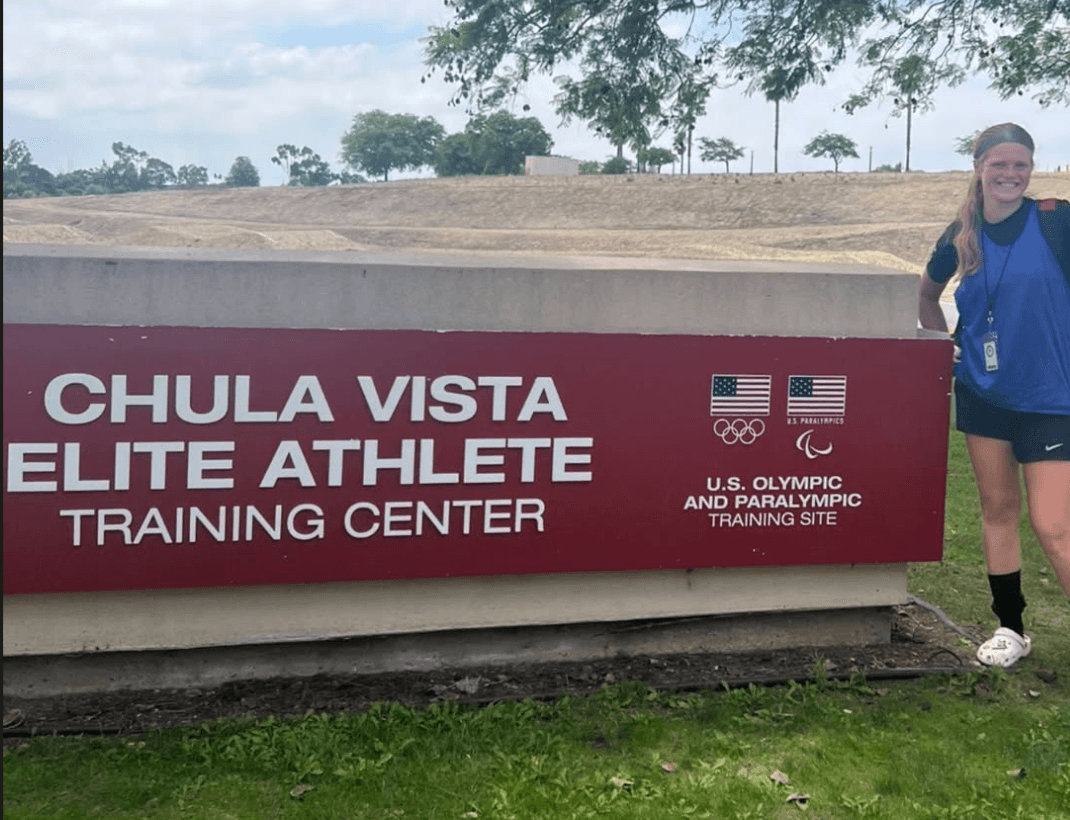
For me, it starts before I even step on the pitch or into the gym, with the right gear. Having the right gloves, cleats, and training apparel isn’t about looking the part; it’s about protection and performance. Having the right GK gloves to protect my hands and wrists and give me the grip and comfort I need to focus on the work, not my gear. When I’m diving on turf or handling close-range shots, that difference in quality really matters.
Next comes building the goalkeeper’s body I need and want for my style of play. Every GK’s physique looks different. In the gym my focus is on explosiveness, speed, and strength. In the gym my training focus is on my explosiveness, speed, and strength. I do a lot of plyometric and explosive movements, box jumps, lateral bounds, resistance sprints, and anything that helps me build quick-twitch power and reaction speed. Having this kind of training directly helps me improve me having faster dives, stronger pushes, and sharper recoveries in goal. I’m in the gym Monday through Thursday working on those areas.
Then there’s the technical work, which I do through both club and private goalkeeper sessions. Any good GK knows our job goes way beyond just “saving shots.” A real program covers everything from clean ball handling, controlled parries, recovery saves, efficient footwork, balanced positioning, smart distribution under pressure, and agility work that keeps your reactions sharp. At youth to u18 levels, many clubs don't have time to focus on each keeper individually, so that's another reason why having your own outside training is important.
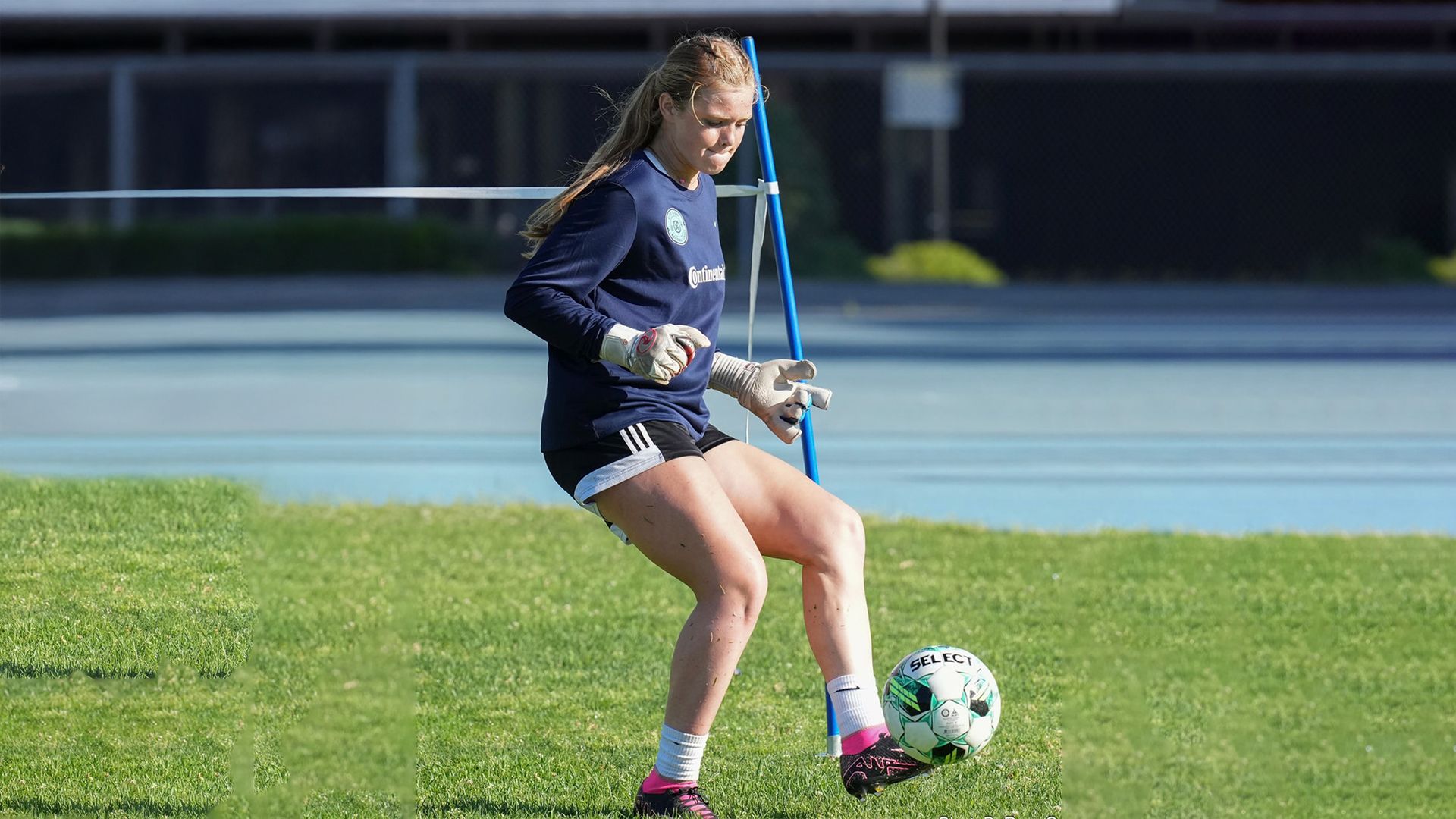
I train with different GK coaches for different skills, and because goalkeeper coaches are in such high demand, I make sure to schedule at least one or two sessions a week outside of club. That consistency helps with my development.
Something I want other goalkeepers to understand though, is that everyone’s schedule will look different, and that’s how it should be. No two GKs have the same training program. Trying to copy what another keeper training program looks like does just because you think they’re more successful won’t help you reach your full potential. Your training has to reflect your own goals, your body, and your schedule. Some keepers train four days a week, others six. Other gks need more gym time, some need more recovery. I feel it is important to have a lot of structure, consistency, and a routine that keeps me improving week after week.
For me a typical week schedules looks like, two to three field sessions focused on handling, footwork, and shot-stopping; two to four gym sessions centered on explosiveness; one active recovery day; and one full rest day to reset mentally and physically. That consistency, over time, is what helped me from becoming static and instead helped me keep moving up.
The bottom line is, goalkeeping is a craft. The best don’t rely on club sessions alone, they build their own path outside of them. I truly believe that a structured, consistent, personal training program is the foundation for long-term success as a GK. Train smart, train consistently, and most importantly, train like your goals depend on it. Because they do if you want to take your career to the next level.
